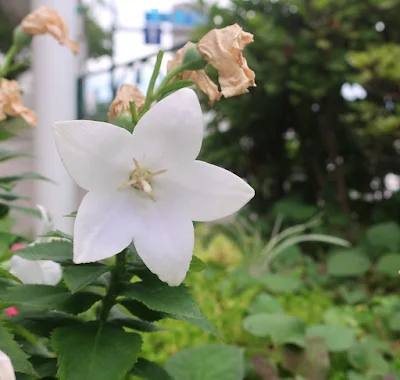英語の後に日本語が続きます。
There is a proverb in Japan which goes "When the wind blows, barrel makers get rich." This means that when something happens, it may cause unexpected effects. And that has happened to me this morning! I got these sponge and bitter gourds because I walk and jump rope every day!! (To see the salad I made using the bitter gourds, read
this post🥗!)
This morning I saw the gardener of the park in which these gourds grew. Our conversation was like this: ("M" means me and "G" means the gardener.)
M: Good morning!
G: It's you who walk very quickly and jump rope every morning, isn't it?
M: Yes!
G: Do you eat bitter gourds?
M: I love bitter gourds😀!
G: Okay, I'll give you bitter gourds as a treat!!
M: Thank you, but I love sponge gourds, too😆!!
G: Okay, okay.
Sadly, these days, people take bitter gourds without asking, so he apologized to me for being able to give me only small bitter gourds, but that doesn't matter. I'm very happy. If you're interested in how barrel makers get rich when the wind blows, read below. It's nonsense! (Source:
Wikimedia Commons):
- When the wind blows, dust will be blown into people's eyes.
- If dust is blown into people's eyes, some people will go blind.
- The traditional employment for blind people in Japan was itinerant shamisen-playing story-tellers.
- The blind people would therefore be predicted to purchase shamisen.
- The skin of the shamisen is often made of cats. So if blind people increase, then cats will be killed for their skin.
- If cats are killed then there will be more mice.
- And if there are more mice, people will need to make sure that their rice is kept in barrels.
- So they will order barrels.
- Barrel makers will get rich.
 |
| Sponge and bitter gourds ヘチマとゴーヤ |


.jpg)











































